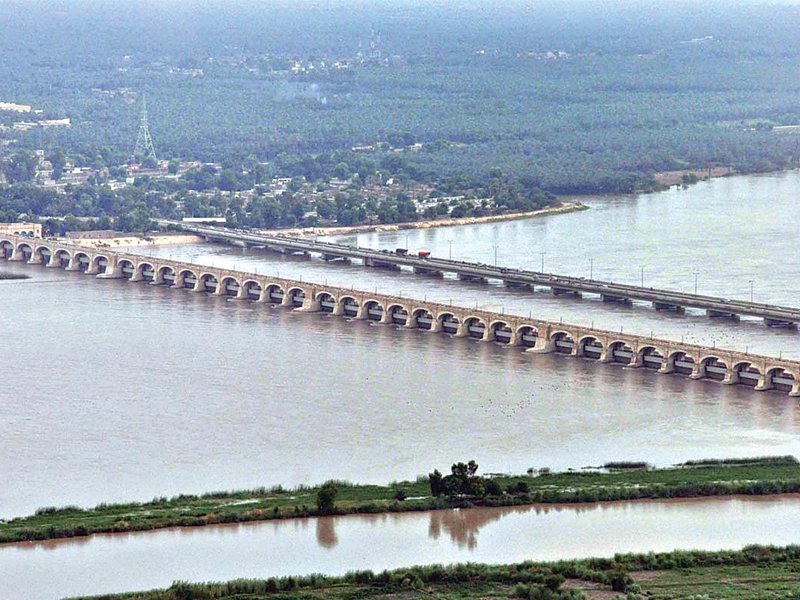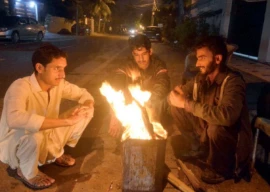
For long, the irrigation authorities have been considering the rehabilitation and modernisation of the decades-old structure of Sukkur Barrage. Though the discharge capacity of the barrage was 1.2 million cusecs of water, the capacity has fallen to 900,000 cusecs now.
The feasibility contract was awarded in 2011 to three firms - Atkin, National Development Corporation and Allied Construction Engineering.
If everything goes alright, then funds will be arranged from the World Bank or Asian Development Bank for renovation, consultants told Sindh irrigation secretary Babar Hussain Effendi, who visited Sukkur Barrage on Saturday.
The feasibility studies have been completed but still need some input from irrigation experts, after which the plan will be submitted to the government to allocate funds, Aftab Khoso, the Sukkur Barrage executive engineer, told The Express Tribune.

Keeping in view the recommendations of the consultants, pilot studies will be carried out at the irrigation laboratory in Hyderabad. “We want to make sure whether reopening the closed gates is viable or not,” he said. “A slight remodelling of the structure will also be needed to enhance water flow in the right pocket [of the barrage].”
Sukkur Barrage was commissioned in 1932 with 66 spans (gates). The designed discharge capacity of the barrage was 1.5 million cusecs but with the passage of time, large amount of silt accumulated in the right pocket, decreasing the discharge capacity in the off-taking canals.
Following this technical problem, a model study was carried out at the Pune Research Institute in India, where irrigation experts of the time, after thorough experiments, recommended closing 10 gates of Sukkur Barrage to save the system. Consequently, nine spans from Gate No. 6 to Gate No. 14 and Gate No. 23 were shut permanently in 1942.
After renovation, the gates will be reopened to restore the barrage’s discharge capacity to 1.5 million cusecs.
Water expert Idrees Rajput, a former irrigation secretary, also confirmed the finalisation of renovation studies. “The consultants have done their job and now it’s up to the irrigation authorities to give their suggestions,” he said.
Published in The Express Tribune, January 22nd, 2013.





1732697578-0/Untitled-design-(5)1732697578-0-270x192.webp)











COMMENTS
Comments are moderated and generally will be posted if they are on-topic and not abusive.
For more information, please see our Comments FAQ